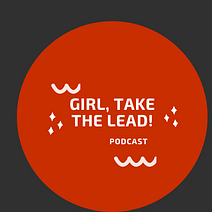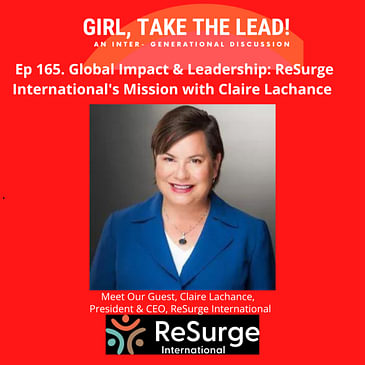Claire Lachance, President & CEO of ReSurge International, a pioneering nonprofit organization dedicated to expanding access to life-changing reconstructive surgery in low income countries, joins Yo to talk about ReSurge’s programs and the positive impact the organization is making in global communities with life-transforming care.
Did you know that five billion people do not have access to safe, timely, and affordable surgical care worldwide, and every two seconds someone dies from a surgically preventable disease?
ReSurge provides free reconstructive surgical care and strengthens surgical systems in low-income countries to give people with treatable conditions a chance to lead fuller, healthier lives.
Claire is a transformative leader dedicated to designing, building, and managing high-performing organizations for social impact.
Topics covered in the Episode:
- Saying yes to opportunities
- United Nations Commission on the Status of Women panel
- Patient transformations in Nepal & Vietnam
- PWRS program
- The International Leadership Association & “Wisdom Leader” (Noetic Sciences)
- How to support ReSurge International
Mentioned in the Episode:
PWRS video: https://resurge.org/pwrs/
International Leadership Association: https://ilaglobalnetwork.org/
Noetic Sciences: https://noetic.org/
Learn more about ReSurge here: www.resurge.org
Support and donate here: https://springforward.funraise.org/
Here are three takeaways from the episode:
1. A key point of difference for ReSurge International is their ability to strengthen surgical systems in low-income countries & the multiplier effect.
2. The PWRS program advances first-generation women reconstructive surgeons in low-income countries across the world. This program aims to tackle the gender gap in global surgery by providing surgical training, leadership development, and mentorship for women surgeons in low-income countries.
3. We can all be “Wisdom Leaders” by listening to our inner selves and intuition.
More About Claire:
Prior to joining ReSurge, Claire served as CEO for the Institute of Noetic Sciences, leading the internationally recognized consciousness research institute through an era of strategic transformation. Claire earned her MBA from Harvard Business School and a Bachelor’s degree in Economics and French from Tufts University. Claire is a member of the International Women's Forum and International Leadership Association, and is a passionate explorer of the role of inner wisdom and interconnection in advancing leadership impact.
ReSurge International Events:
ReSurge's Spring Campaign; the ReSurge Gala on October 5th in San Francisco; possible a specific workshop at the International Leadership Association's November conference (pending approval of the workshop). Check the website for more information:
How to reach Claire & ReSurge International:
LinkedIn: Claire Lachance
FB Groups:
ReSurge International
International Leadership Association
How to reach Yo Canny:
Our website:
You can send a message or voicemail there. We’d love to hear from you!
email:
yo@yocanny.com (Yo)
FB group: Girl, Take the Lead
https://www.facebook.com/groups/272025931481748/?ref=share
IG: yocanny (Yo)
LinkedIn:





